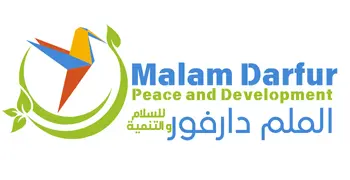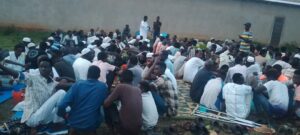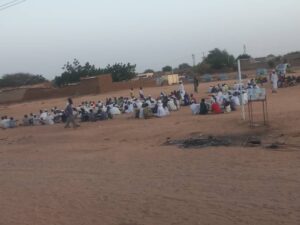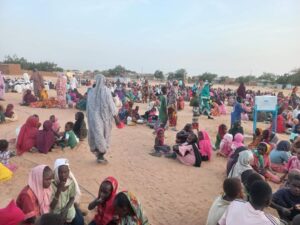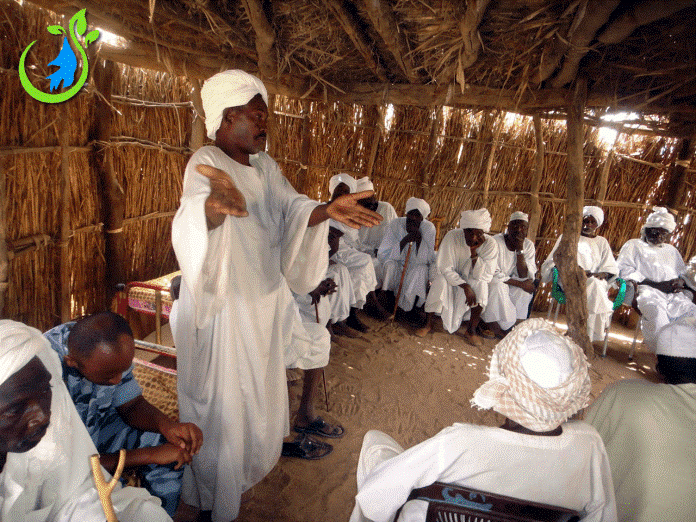Due to its strategic location and ethnic diversity, Al-Malam locality was greatly affected by the war that broke out in Darfur in 2003.
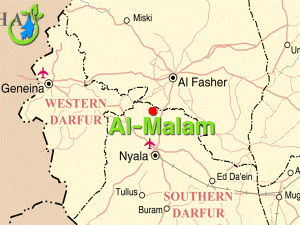
Located in the heart of the northern localities of South Darfur State, all the way to North Darfur state, Al-Malam is a strategic gateway for travelers and commercial movement in and out of eastern Jebel Marra, which is rich in agricultural production. Studies conducted before the outbreak of war indicate that Al-Malam locality and its market received more than three hundred trucks weekly from the market of Derbat in the eastern Jebel Marra, in addition to the trading of more than ten thousand head of cattle in the market every week.
During the war, Al-Malam locality was on the receiving end of successive attacks by the Janjaweed militias and the armed movements alike, which resulted in inflicting great damage than can be summarized as follows:
Kila village and its adjacent western villages were destructed, forcing those who survived to seek refuge in IDP camps in Mersheng locality and the city of Nyala, the capital of South Darfur state.
The northern village of Tarba was destroyed, forcing its population to flee to IDPs camp in Mersheng and Shankel Tobaya localities as well as camps in Nyala and Al-Fashir, the capital of North Darfur State.
Um Dasho village, located in the eastern tip was also destroyed and its inhabitants moved to the neighboring village of Qaradid.
Al-Malam village was subject to numerous attacks that resulted in the killing of a large number of its inhabitants, forcing a quarter of them to go to IDP camps in Nyala.
The war created a state of polarization among the society, disintegrating the social fabric that had been always harmonious and peaceful for hundreds of years.
All of this emptied the area of its local population, leading to an economic collapse and suspension of vital sectors such as water, education, health, trade, agriculture and livestock.
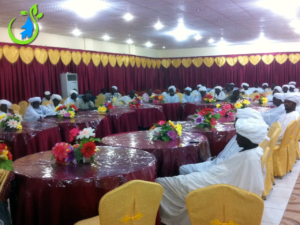
When the Malam Darfur Peace and Development Foundation (MDPD) was established in late 2011, peace and reconciliation were the major objectives. MDPD sought to achieve these objectives by holding a preparatory conference in Nyala, the capital of South Darfur state, in November 2011. The conference brought together the displaced community and residents, and shared with them a roadmap for peace and reconciliation to pave the way for sustainable peace and development. The initial development projects focused on reconstruction, water, education, health, agriculture and livestock.
One of the most important outcomes of the conference is the overwhelming desire of the participants to achieve peace and reconciliation; their commitment to the road map; and the willingness of the region’s population to overcome the bitterness of war. The people were ready to engage in serious efforts to achieve the fundamental goals of peace, reconciliation, return and building.
The peacebuilding mechanism evolved since then. In 2014, the Women Peace Ambassadors program was lunched and it served as the building blocks for sustainable peace in the area. Subsequently, the Peace Committee was formed in 2015 to achieve peace in the northern districts of South Darfur state (Al-Malam, East Jebel Marra and Mershing). Until today, both bodies are activity engaged in safeguarding the peace that had been restored, which resulted in the return of most of those displaced by the war.
